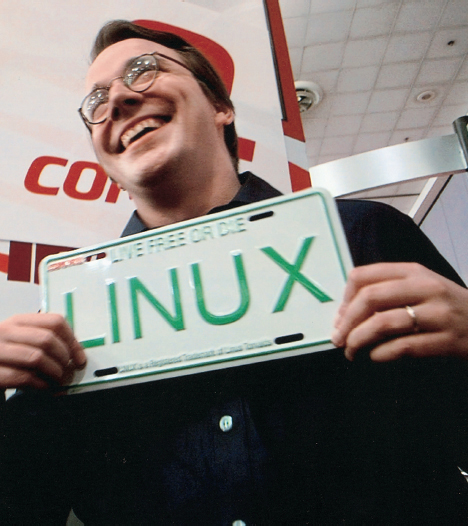The Noncommercial Web
Printed Page 279
Despite powerful commercial forces dictating much of the content we access online, the pioneering spirit of the Internet’s independent early days endures; the Internet continues to be a participatory medium where anyone can be involved. Two of the most prominent areas in which alternative voices continue to flourish are in open-source software and digital archiving.

Open-Source Software
Microsoft has long dominated the software industry—requiring users to pay for both its applications and its upgrades, and keeping its proprietary code protected from changes by outsiders. Yet independent software creators persist in making alternatives through open-source software, in which code can be updated by anyone interested in modifying it. One example is the open-source operating system Linux, introduced in 1991 by Linus Torvalds and shared with computer programmers and hobbyists around the world who have avidly participated to improve it. Today, even Microsoft acknowledges that Linux is a credible alternative to expensive commercial programs.
Digital Archiving
Librarians have worked tirelessly to build digital archives that exist outside of any commercial system. One of the biggest and most impressive digital-preservation initiatives is the Internet Archive (www.archive.org), established in 1996. The Internet Archive aims to ensure that researchers, historians, scholars, and all U.S. citizens have access to digitized content. This content comprises all the text, moving images, audio, software, and more than eighty-five billion archived Web pages reaching back to the earliestdays of the Internet.
The Internet Archive has also partnered with the Open Content Alliance to digitize every book in the public domain (generally, those published before 1922). This book-scanning effort is the nonprofit alternative to Google’s Library Project, which has the colossal goal of digitizing every book ever printed. The Open Content Alliance, which works with the Boston Public Library, several university and international libraries, and a few corporate sponsors, aims to keep as much online information as possible in the “commons”—a term that refers to the collective ownership of certain public resources, like the broadcast airwaves, the Internet, and public parks. The alliance’s concern is that online content like digital books might otherwise become solely the property of commercial entities.